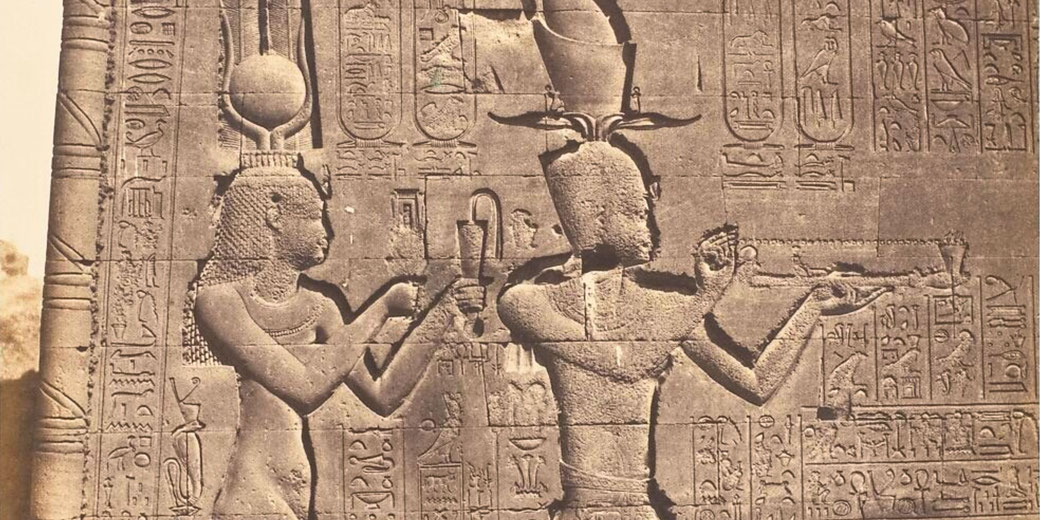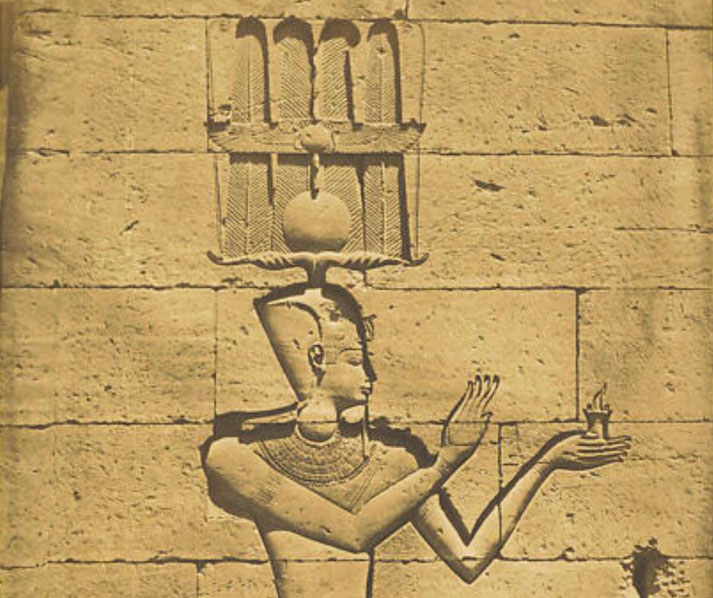The tragically short life of Caesarion, the only child of Julius Caesar and Cleopatra

The life of Caesarion, the last Pharaoh of Egypt, was destined for controversy from the moment of his birth. His existence was a palpable symbol of the fragile alliances and tensions between Rome and Egypt, two powers that had shaped the Mediterranean world.
His title, Ptolemy XV Philopator Philometor Caesar, promised a blending of cultures and a potential bridge between the Roman Republic and the Ptolemaic dynasty of Egypt.
However, the reality of his short life was far from the grandeur his lineage suggested.
Being a young pawn in the greatest struggle of the age
Caesarion was born in 47 BCE, a child of two of history's most legendary figures: Cleopatra VII, the last active ruler of the Ptolemaic Kingdom of Egypt, and Julius Caesar, the Roman dictator who had a profound impact on the course of Western history.
His birth was surrounded by political machinations, as Cleopatra sought to solidify her throne and Egypt's independence through her alliance with Rome, represented by Caesar.
The relationship between his mother and Caesar brought Caesarion into a world where his very existence was a delicate balance between diplomacy and dynastic ambition.
Following Caesar's assassination in 44 BCE, Cleopatra returned to Egypt with her son, where she co-ruled as a god-king alongside her young son in an attempt to maintain Egypt's sovereignty amidst Rome's internal chaos.
Caesarion's early life was overshadowed by his mother's political maneuvers to protect their reign and ensure his ascension to power.
He was educated in the Hellenistic tradition, learning about Greek philosophy, sciences, and the arts, which were highly valued in the multicultural and richly intellectual environment of Alexandria, Egypt's capital.
The young pharaoh's life took a dramatic turn following the arrival of Mark Antony in Egypt in 41 BCE, leading to an alliance and eventual romantic partnership between Antony and Cleopatra.
This relationship resulted in the birth of three siblings for Caesarion, further complicating the political landscape.
Antony declared in 34 BCE that Caesarion as the legitimate son and heir of Julius Caesar.
Why was young Caesarion seen as such threat?
At this time, the Roman world was plunged into a series of civil wars, with power eventually consolidating under Octavian, Caesar's adopted heir.
In this tumultuous period, Caesarion's role became even more politically charged.
Mark Antony's support for Caesarion as the legitimate heir to Caesar posed a direct threat to Octavian's claim to Caesar's legacy and the leadership of Rome.
This contest over legitimacy not only deepened the divide between Octavian and Antony but also made Caesarion a key figure in the struggle for power that would determine the fate of the Roman and Egyptian worlds.
The alliance between Cleopatra and Mark Antony, solidified through their marriage and the recognition of Caesarion as Caesar's son, was a bold move that sought to create a counterbalance to the rising power of Octavian.
This alliance, however, also made Caesarion a target. Octavian used the threat posed by Caesarion and the alliance between his mother and Antony as a pretext for war, framing his campaign as a defense of Rome against foreign domination.
The ensuing conflict culminated in the Battle of Actium in 31 BCE, a decisive victory for Octavian that led to the downfall of Antony and Cleopatra and, ultimately, the annexation of Egypt as a Roman province.
Caesarion's brief reign as pharaoh of Egypt
Officially crowned as Ptolemy XV Philopator Philometor Caesar, he co-ruled with his mother, Cleopatra VII, from 44 BCE until their downfall in 30 BCE.
Caesarion, though officially king, was under the guardianship of his mother, who managed state affairs.
During their co-regency, Egypt faced significant economic challenges, including famine and the financial strains of Cleopatra's military campaigns and political alliance with Mark Antony.
This period saw Egypt reach its last peak of power in the Mediterranean, as Cleopatra and Antony attempted to create a Hellenistic East empire that could stand against Rome.
The reign of Caesarion also saw cultural and scholarly advancements, with Alexandria remaining a center of learning and culture.
The famous Library of Alexandria and the city's scholarly institutions continued to flourish, contributing to the Hellenistic culture that blended Egyptian, Greek, and Roman elements.

The final conquest of Egypt by Rome
By the 30s BC, Antony and Cleopatra's union, alarmed many in Rome, who feared the concentration of power and the potential shift of the empire's center to the East.
Octavian exploited these fears, portraying Antony's alliance with Cleopatra as a betrayal of Roman values and a threat to the republic's stability.
The propaganda war between Octavian and Antony, filled with accusations and counteraccusations, set the stage for the inevitable conflict.
The fall of Egypt, marking the end of the Ptolemaic dynasty and the country's incorporation into the Roman Empire, was a culmination of political, military, and personal conflicts that unfolded dramatically in the first century BCE.
The pivotal event leading to this downfall was the Battle of Actium on September 2, 31 BCE, where the fleets of Cleopatra VII and Mark Antony faced off against the naval forces of Octavian, the future Emperor Augustus.
The defeat at Actium was catastrophic for Antony and Cleopatra. Their forces were outmaneuvered and overwhelmed by Octavian's navy, leading to a devastating loss.
In the aftermath, Antony and Cleopatra retreated to Alexandria, where they hoped to defend Egypt against Octavian's advancing forces.
However, the situation was dire. The loyalty of their allies waned, and Octavian's diplomatic efforts further isolated the couple.
In 30 BCE, Octavian's forces entered Egypt, facing little resistance. Antony, believing falsely that Cleopatra had died, took his own life.
Cleopatra, after failing to negotiate a favorable outcome with Octavian, also chose suicide, preferring death to the humiliation of being paraded as a captive in Rome.
What happened to Caesarion?
Following the capture of Alexandria by Octavian's forces in 30 BCE, his mother, in a final bid to secure her son's safety, sent him towards India with a small retinue.
However, Caesarion never reached his destination. He was captured by Octavian's men.
In a cold calculation of political expedience, Octavian ordered the execution of the seventeen-year-old Caesarion, purportedly remarking that "too many Caesars is not good."
Egypt was transformed into a Roman province, its immense wealth and resources now directly under imperial control.
This annexation was a critical step in Octavian's rise to unchallenged power, eventually leading to his title as Augustus, the first Roman Emperor.
The Roman Empire gained a vital source of grain, wealth, and strategic military and trade routes by controlling Egypt.
Furthermore, the cultural and intellectual legacy of Alexandria did not die with Cleopatra and Caesarion.
Under Roman rule, Alexandria remained a hub of learning and culture, its library and scholarly institutions continuing to influence the Mediterranean world.
What do you need help with?
Download ready-to-use digital learning resources
Copyright © History Skills 2014-2025.
Contact via email
With the exception of links to external sites, some historical sources and extracts from specific publications, all content on this website is copyrighted by History Skills. This content may not be copied, republished or redistributed without written permission from the website creator. Please use the Contact page to obtain relevant permission.





